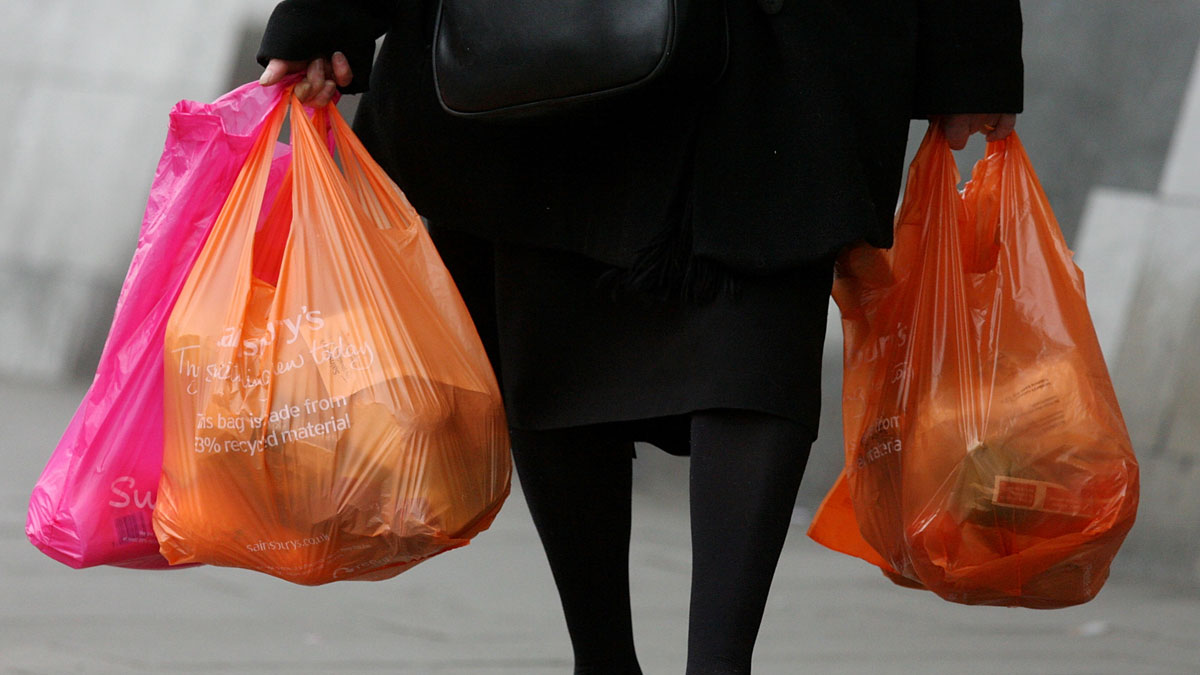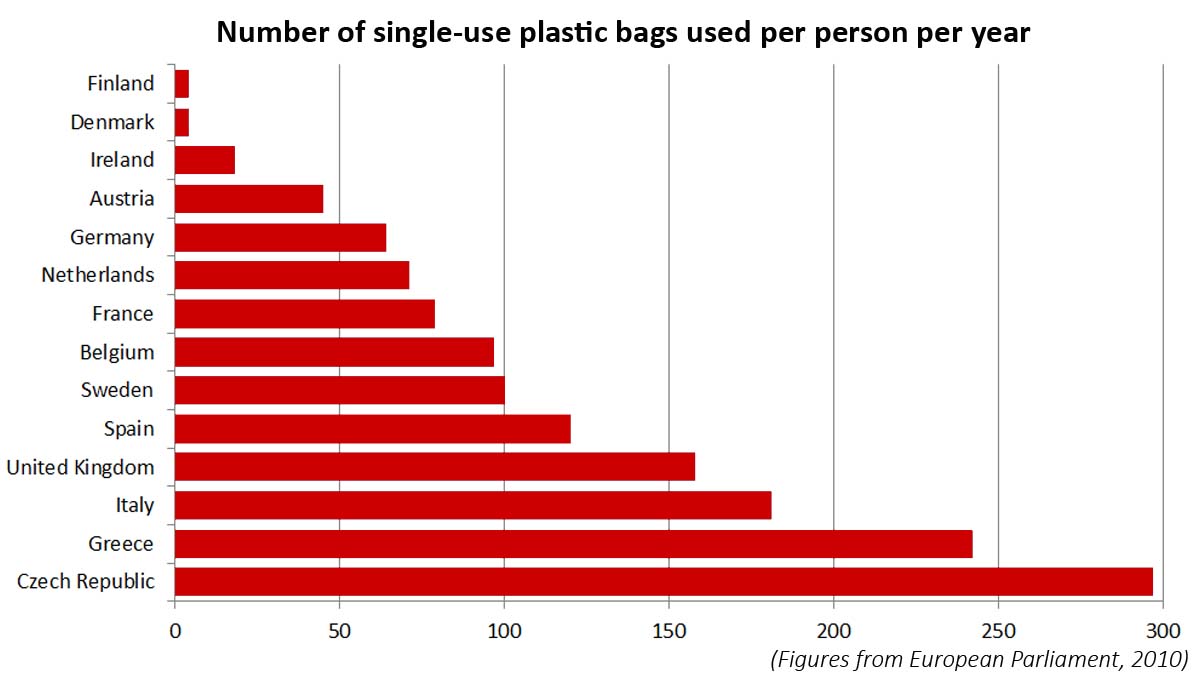Plastic bags to cost 5p: the 'baffling' new rules explained
New plastic bag law comes into effect from today as confusion grows over exemptions

A free daily email with the biggest news stories of the day – and the best features from TheWeek.com
You are now subscribed
Your newsletter sign-up was successful
A new law that comes into effect today will require large shops in England to charge 5p for all single-use plastic bags.
The new regulations, brought in by the Department for Environment, Food & Rural Affairs (Defra), are intended to reduce the use of plastic carrier bags and encourage people to reuse bags to limit litter and protect wildlife.
Which shops are affected?
The Week
Escape your echo chamber. Get the facts behind the news, plus analysis from multiple perspectives.

Sign up for The Week's Free Newsletters
From our morning news briefing to a weekly Good News Newsletter, get the best of The Week delivered directly to your inbox.
From our morning news briefing to a weekly Good News Newsletter, get the best of The Week delivered directly to your inbox.
The law is obligatory for large retailers that have over 250 employees, while smaller business can also charge on a voluntary basis. Based on the size of the company rather than an individual branch, the 5p bag charge will apply to all major UK supermarket chains. According to government guidelines, a bag qualifies if it is made of plastic, is unused, has a handle and is 70 microns thick or less.
What about home delivery?
Those receiving food deliveries from Asda, Sainsbury's, Waitrose and Tesco will be given the option of a 'bagless' delivery or a flat rate of 40p for bagged goods. Morrisons and Ocado are charging 5p for each bag used, but will pay 5p for every bag returned.
Why the confusion?
A free daily email with the biggest news stories of the day – and the best features from TheWeek.com
There are exemptions for shops in airports and on trains, but not for bio-degradable bags, prompting criticism from environmental campaigners. Defra has also exempted certain products, including unwrapped food, raw meat and fish, prescription medicine, uncovered blades, flowers, live fish and 'unwrapped food', which entitle shoppers to receive a free plastic bag. However, consumers will be charged if they pack anything from outside the list in the same bag. As an example for shop owners, the government guidelines explain: "You wouldn't charge for a bag containing an unwrapped blade and unwrapped loose seeds, but adding a box of cornflakes means you'd have to charge." It is the responsibility of cashiers to decide if the bag 'qualifies' before charging.
The Daily Mail warns on its front page today that "plastic bags chaos looms". The newspaper welcomes the new charge but questions whether all the exemptions are really necessary. "It would be a travesty if this potentially massive boost for our environment – reducing the blight of discarded bags littering streets, parks and beaches – were to become mired in confusion," it says. Meanwhile, The Independent predicts "arguments at the checkout" as shoppers and cashiers are left baffled by the rules.
Where does the 5p go?
For each 5p charge, 0.83p goes to the Treasury in VAT. The government says it expects the rest to go to "good causes", although it is up to individual retailers to choose what to do with the money and which cause to support. Marks & Spencer, which has charged 5p for larger bags for the past eight years, gives its profits to WWF, the Marine Conservation Society and educational projects about marine life.
How many plastic bags do we use?
According to official figures, in 2014 more than 8.5 billion single-use plastic bags were given out to customers by major supermarkets in England alone. That's roughly 140 bags per person, equivalent to 61,000 tonnes. The number of plastic bags taken from supermarkets has increased for the fifth year running although research has shown that the average household already contains 40 used plastic bags. Wales, Scotland and Northern Ireland, where the 5p scheme has already been introduced, have seen plastic bag consumption reduced by almost 80 per cent over the past three years and the government is hoping for a similar reduction in England with an estimated £780m raised to go to good causes, litter clean-ups and carbon savings. Campaigners say more than a million plastic bags are used every minute around the world, each with an average working life of just 15 minutes.
